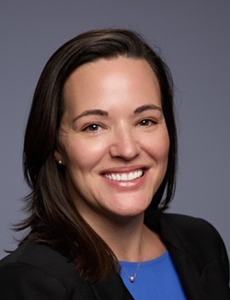Column: Workers' Comp
The Path to Accountable Care
Not many people are talking about the potential role of accountable care organizations in workers’ comp, at least not yet. But there are indications that “value-based” medical provider reimbursement and the ACO concept advanced by the Affordable Care Act will play a role in workers’ comp.
So a few industry leaders are discussing how ACOs and value-based health care might eventually reduce medical spend while improving care provided for injured workers.
ACOs come in different flavors. In general, the goal is for an ACO to coordinate the entire spectrum of care provided to a population. For a patient needing back surgery, for instance, an ACO would provide primary doctor care visits, MRIs, the surgeon, post-op hospital care, physical therapy, medications and all other necessary attention.
The ACO would do that while shouldering financial risk and being held accountable for providing outcomes measured for their expense reduction and clinical results.
Building this type of business model in workers’ comp may sound idealistic and hurdles do exist.
The idea could replace the fragmented care now typical in workers’ comp, when one specialty network provides the MRI, another the doctor, and still another provides physical therapy services. It would replace fee-for-service arrangements with bundled, “value-based reimbursement” that incentivizes providers to deliver quality care.
Building this type of business model in workers’ comp may sound idealistic and hurdles do exist.
But with many ACO initiatives already operational in group health and some showing positive results, it’s only a matter of time before a form of value-based health care purchasing emerges in comp. Results from those arrangements will help the industry build consensus on which value-based practices to adopt.
Jacob Lazarovic, an M.D., and chief medical officer and senior VP at third-party administrator Broadspire, believes the model most likely to surface in workers’ comp focuses on the bundling of care, with medical providers collaborating to provide “episodes of care” around a worker’s specific injury diagnosis.
Bundled care is sometimes thought of as a stepping stone toward accountable care, according to a paper Lazarovic authored.
A nationwide shift to ACO models won’t be easy or quick, probably occurring over years, even in group health, said Kimberly George, senior VP at Sedgwick Claims Management Services Inc.
But George is also monitoring growing employer efforts to adopt ACO models that meet employee health care needs normally provided through traditional group health plans.
Since late 2013, George has seen health plans nationwide that are Sedgwick clients asking the TPA for information that might help them provide occupational health services as part of their ACO offerings. They want data on the total cost of workers’ comp claims inclusive of all medical services and even inclusive of litigation.
These are health care systems that have implemented ACOs for their own employees and the group health needs of employees working for other employers in their communities. Now they are trying to understand how to price for occupational services.
Those familiar with how managed care practices migrated from group health to workers’ comp shouldn’t be surprised that adoption of ACO models might travel the same path.
So while discussion of ACOs in workers’ comp remains limited today, don’t get caught off guard when talk of value-based reimbursement in exchange for treating injured workers accelerates.











